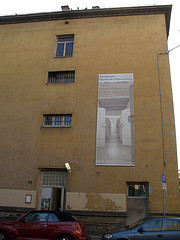The most important political developments in the uk during the Second World War followed the formation of a new coalition authorities under Winston Churchill in May 1940. This coalition changed the Conservative-dominated national authorities which had been in energy since 1931, thereby closing a decade of Conservative ascendancy. Labour returned to a discuss in government with less posts than the Conservatives, yet historians have shown that the celebration used its place in the particular coalition to reshape the particular domestic agenda of uk politics. At the administrative degree, the functions of government just grew to meet the demands associated with ‘total war’.
The staff of central authorities almost doubled in wartime and new methods of financial management, industrial organization plus public administration were utilized, some of which lasted into the post-war period. At the popular degree, the common experience of war has been seen by commentators to have promoted a new set of politics values. It is generally decided that the wartime ‘swing to the left’ contributed to the political election of the first majority work government in 1945; as will be shown, however, the discussion continues about the strength, time and ideological content of this shift in political viewpoint. More controversial still is the particular thesis that cross-party co-operation in wartime gave increase to a political consensus, characterized by policy convergence on places such as welfare reform, the particular operation of a mixed economic climate, conciliation of the trade assemblage and a commitment to complete employment.
this particular topic will assess the politics impact of the war, each at Westminster and in conditions of popular attitudes.
First, though, a brief discussion is required of high national politics in the immediate pre-war time period and the factors which led to the replacement of Chamberlain’s authorities with Churchill’s coalition. the particular declaration of war on philippines on 3 September 1939 was announced by Neville Chamberlain, a forceful in case uncharismatic Conservative politician that succeeded Stanley Baldwin because Prime Minister in May 1937. Chamberlain’s arrival at the top of the particular political hierarchy coincided with an acceleration in Britain’s recover)’ from the deep and extented depression which had scarred parts of the country during the inter-war many years. He could claim some credit score for this as a former Chancellor in a government which mixed low interest rates, a managed trade rate, balanced budgets or even at worst modest budget loss cautious social reform plus limited state intervention within industry to ease recovery. because Prime Minister, though, Chamberlain’s attention was diverted away from the domestic issues which experienced preoccupied him at the Treasury and towards the sphere associated with international diplomacy. Germany experienced never been reconciled to the punitive conditions and comarcal losses imposed in 1919 after its defeat in the First World War. whenever Adolf Hitler’s National Socialist Party came to power within 1933 there was no longer any kind of doubt that Germany has been prepared to use force to secure a revision of the post-war arrangement in its favor.
This article has been compiled by Classof1, a leading online Homework-Help supplier.
For assistance with your background Homework Help you can visit classof1. com
Classof1. com will be open 24/7. You can call us at 1-877-252-7763 or fall an email to learning@classof1. com
Related Politics Articles

